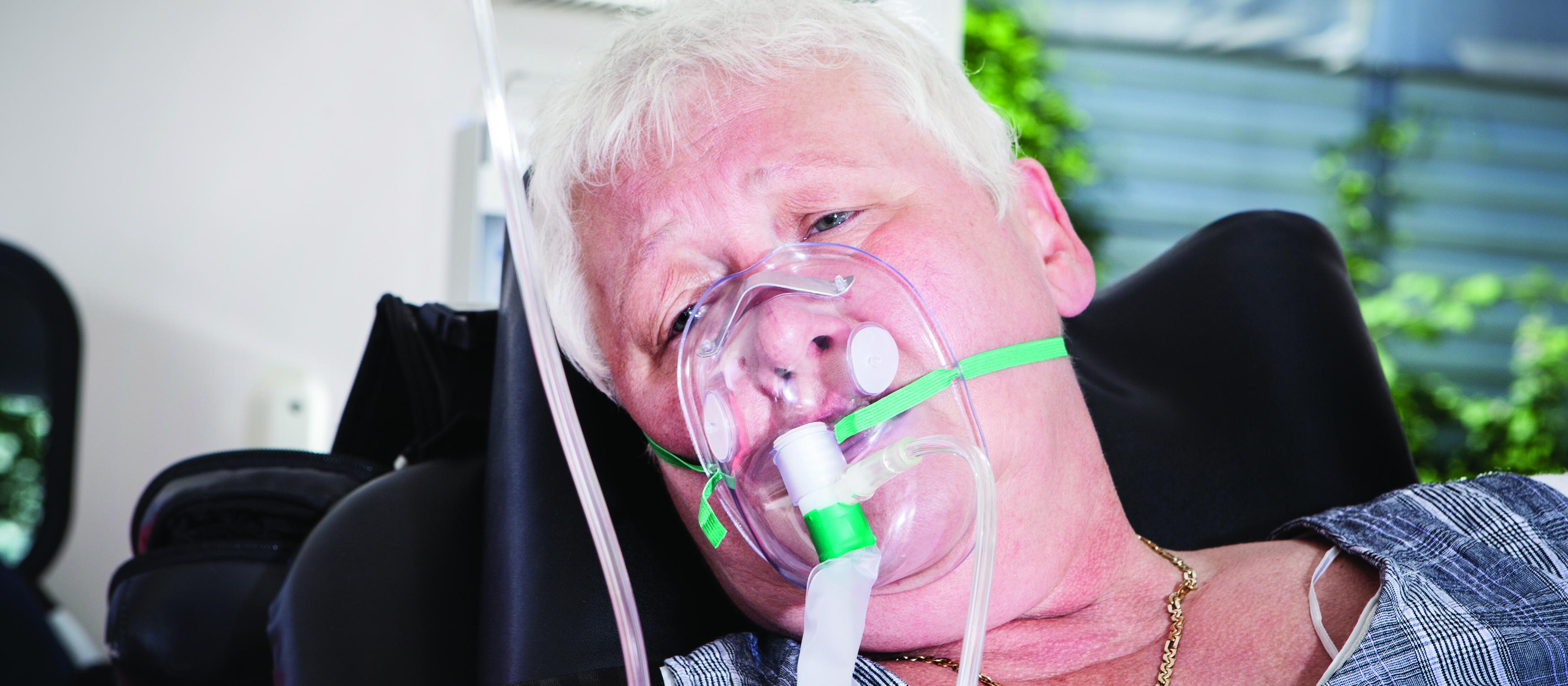Respiratory physician Lutz Beckert considers chronic obstructive pulmonary disease management, including the prevention of COPD, the importance of smoking cessation and pulmonary rehabilitation, and the lifesaving potential of addressing treatable traits. He also discusses the logic of inhaler therapy, moving from single therapy to dual and triple therapy when indicated, as well as other aspects of management
Getting real about the power of Govt
Getting real about the power of Govt

Commitments were made in the Primary Health Care Strategy and the NZ Health and Disability Act, and government didn’t or wasn’t able to deliver. The review team wants to take this bull by the horns again
Anyone looking for a new take on the issues our health system faces will not find it in the major report released yesterday.
Fragmented services, difficulties in progressing population health, persistent inequities in access and health outcomes, inefficiencies of governance and contracting. All these are outlined in the interim report of the Health and Disability System Review Panel, and they are longstanding complaints shared by a wide range of stakeholders.
The zeitgeist of 2019 enters in the way in which the report outlines failures to honour the Treaty of Waitangi, support the Māori health sector and make a significant dent in disparities between Maori and non-Māori.
How does the report define the key problems and issues facing our health and disability system? And what hints are there about what the review panel is thinking about what to do and how to do it?
On the first point, the interim report is richly descriptive and does justice to the complex task of describing and diagnosing the key issues.
Where the report adds significant value is in collating vital data on our health system that has been missing or inaccessible for some time, and in doing so it provides a far more comprehensive picture than other government agencies have been able to provide.
For instance, we see who wins and loses when there is no per-capita growth in health funding. Between 2009 and 2018, the proportion of DHB funding allocated to public hospitals and other DHB-provided services crept up from 61 per cent to 63 per cent.
The only category with a larger piece of the DHB pie in 2018 was (in-patient) medical personnel (19 per cent compared with 17 per cent in 2009).
For years, we have had to guess the public and private shares of general practice funding. We can now be clear that just over two thirds of funding for general practice services flows through DHBs and the PHO Service Agreement, and 9 per cent comes from ACC, leaving just under a quarter from private sources (patient co-payments and private insurance).
We also learn that the proportion of the population enrolled in PHOs is now 94 per cent. This is likely to be a slight overestimate due to some double-counting. Compared with 10 years ago, the proportion of “unattached” patients has increased, and is reaching levels that should ring alarm bells.
As for what the review is likely to recommend in its final report next March, I’m most interested in the nuances around how to make progress on the issues it outlines.
Reading between the lines, the review team (or, I suspect, chair Heather Simpson herself) is not a great believer in the potential of district alliances between PHOs and DHBs. When they do get a mention, the tone is disparaging.
In this document, collaboration is valued, but only at the service delivery level, or between regional groupings of DHBs. Canterbury gets a tick as a model for service integration, but the inter-organisational innovations developed there are downplayed.
There are clear hints that the review is seriously rethinking the status and role of PHOs. It’s hard to miss the very pointed reference to Pinnacle/Midlands organisational arrangements on p150. Someone is clearly not amused.
The words that make a big comeback in this document are “planning” and “accountability”.
As such, we can expect that the March 2020 report will deliver recommendations to redesign the governance, accountability and planning arrangements of the health sector, and this will require legislative change.
The return to planning and accountability chimes with the tone of the Waitangi Tribunal report. which sees the Crown’s failures regarding primary healthcare in terms of failures of accountability of public and private organisations.
In one sense, it is difficult to argue with this. Commitments were made in the Primary Health Care Strategy and the NZ Health and Disability Act, and government didn’t or wasn’t able to deliver. The review team wants to take this bull by the horns again.
But, if this is what they are thinking, then I hope Ms Simpson and her team give some serious thought and attention to why planning and accountability policy instruments fell short of hopes and expectations in the 2000s.
The interim report points the finger at lack of leadership and staff turnover at senior management in the ministries and DHBs. I hope they also delve into public management research and the sociology of organisations for some deeper insights regarding the limitations of a return to a more prescriptive and directive approach.
There is a large gap between what governments have nominal responsibility for, and what they are actually able to control. In these conditions, planning and accountability mechanisms typically fall short of expectations.
The report also places great importance on the whole health and disability sector singing from the same song sheet of collective values.
Again, there is scope to build on those areas of broad consensus about what is most important, and there are plenty of these (integration, quality, addressing social determinants of health inequity, honouring the treaty, consumer engagement).
But I do wonder whether it is worth spending energy on cultivating a shared language of values as a way of addressing entrenched structural problems.
To me, this suggests solutions that emphasise what people say (in planning documents) over what they do. I’d prefer that the review team spend its valuable time working out how to encourage health sector players to do the right thing, instead of ensuring that they say the right thing without being able to do much. Otherwise, I fear we will be hearing the same old songs of the 2000s throughout the 2020s.
Tim Tenbensel is associate professor, health policy, in the School of Population Health at the University of Auckland
We've published this article as a FREE READ so it can be read and shared more widely. Please think about supporting us and our journalism – subscribe here





![Barbara Fountain, editor of New Zealand Doctor Rata Aotearoa, and Paul Hutchison, GP and senior medical clinician at Tāmaki Health [Image: Simon Maude]](/sites/default/files/styles/thumbnail_cropped_100/public/2025-03/Barbara%20Fountain%2C%20editor%20of%20New%20Zealand%20Doctor%20Rata%20Aotearoa%2C%20and%20Paul%20Hutchison%2C%20GP%20and%20senior%20medical%20clinician%20at%20T%C4%81maki%20Health%20CR%20Simon%20Maude.jpg?itok=-HbQ1EYA)
![Lori Peters, NP and advanced health improvement practitioner at Mahitahi Hauora, and Jasper Nacilla, NP at The Terrace Medical Centre in Wellington [Image: Simon Maude]](/sites/default/files/styles/thumbnail_cropped_100/public/2025-03/2.%20Lori%20Peters%2C%20NP%20and%20advanced%20HIP%20at%20Mahitahi%20Hauora%2C%20and%20Jasper%20Nacilla%2C%20NP%20at%20The%20Terrace%20Medical%20Centre%20in%20Wellington%20CR%20Simon%20Maude.jpg?itok=sUfbsSF1)
![Ministry of Social Development health and disability coordinator Liz Williams, regional health advisors Mary Mojel and Larah Takarangi, and health and disability coordinators Rebecca Staunton and Myint Than Htut [Image: Simon Maude]](/sites/default/files/styles/thumbnail_cropped_100/public/2025-03/3.%20Ministry%20of%20Social%20Development%27s%20Liz%20Williams%2C%20Mary%20Mojel%2C%20Larah%20Takarangi%2C%20Rebecca%20Staunton%20and%20Myint%20Than%20Htut%20CR%20Simon%20Maude.jpg?itok=9ceOujzC)
![Locum GP Helen Fisher, with Te Kuiti Medical Centre NP Bridget Woodney [Image: Simon Maude]](/sites/default/files/styles/thumbnail_cropped_100/public/2025-03/4.%20Locum%20GP%20Helen%20Fisher%2C%20with%20Te%20Kuiti%20Medical%20Centre%20NP%20Bridget%20Woodney%20CR%20Simon%20Maude.jpg?itok=TJeODetm)
![Ruby Faulkner, GPEP2, with David Small, GPEP3 from The Doctors Greenmeadows in Napier [Image: Simon Maude]](/sites/default/files/styles/thumbnail_cropped_100/public/2025-03/5.%20Ruby%20Faulkner%2C%20GPEP2%2C%20with%20David%20Small%2C%20GPEP3%20from%20The%20Doctors%20Greenmeadows%20in%20Napier%20CR%20Simon%20Maude.jpg?itok=B0u4wsIs)
![Rochelle Langton and Libby Thomas, marketing advisors at the Medical Protection Society [Image: Simon Maude]](/sites/default/files/styles/thumbnail_cropped_100/public/2025-03/6.%20Rochelle%20Langton%20and%20Libby%20Thomas%2C%20marketing%20advisors%20at%20the%20Medical%20Protection%20Society%20CR%20Simon%20Maude.jpg?itok=r52_Cf74)
![Specialist GP Lucy Gibberd, medical advisor at MPS, and Zara Bolam, urgent-care specialist at The Nest Health Centre in Inglewood [Image: Simon Maude]](/sites/default/files/styles/thumbnail_cropped_100/public/2025-03/7.%20Specialist%20GP%20Lucy%20Gibberd%2C%20medical%20advisor%20at%20MPS%2C%20and%20Zara%20Bolam%2C%20urgent-care%20specialist%20at%20The%20Nest%20Health%20Centre%20in%20Inglewood%20CR%20Simon%20Maude.jpg?itok=z8eVoBU3)
![Olivia Blackmore and Trudee Sharp, NPs at Gore Health Centre, and Gaylene Hastie, NP at Queenstown Medical Centre [Image: Simon Maude]](/sites/default/files/styles/thumbnail_cropped_100/public/2025-03/8.%20Olivia%20Blackmore%20and%20Trudee%20Sharp%2C%20NPs%20at%20Gore%20Health%20Centre%2C%20and%20Gaylene%20Hastie%2C%20NP%20at%20Queenstown%20Medical%20Centre%20CR%20Simon%20Maude.jpg?itok=Z6u9d0XH)
![Mary Toloa, specialist GP at Porirua and Union Community Health Service in Wellington, Mara Coler, clinical pharmacist at Tū Ora Compass Health, and Bhavna Mistry, specialist GP at Porirua and Union Community Health Service [Image: Simon Maude]](/sites/default/files/styles/thumbnail_cropped_100/public/2025-03/9.%20Mary%20Toloa%2C%20Porirua%20and%20Union%20Community%20Health%20Service%20in%20Wellington%2C%20Mara%20Coler%2C%20T%C5%AB%20Ora%20Compass%20Health%2C%20and%20Bhavna%20Mistry%2C%20PUCHS%20CR%20Simon%20Maude.jpg?itok=kpChr0cc)